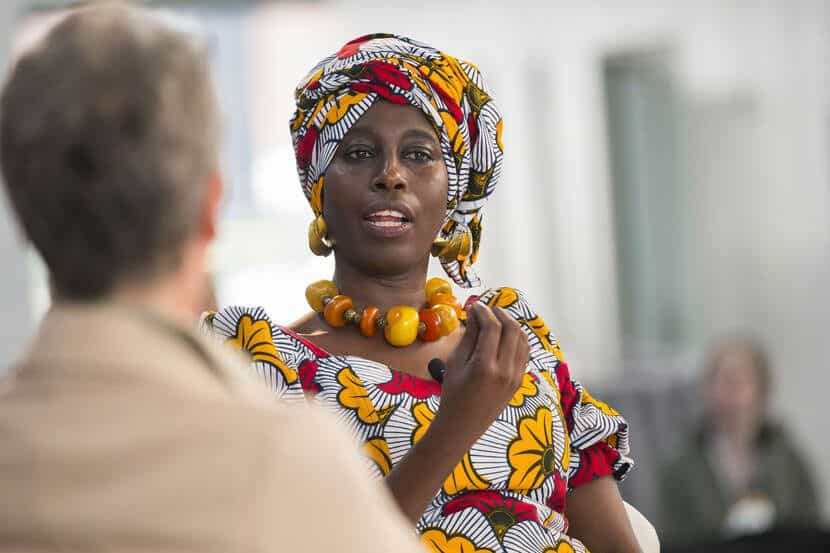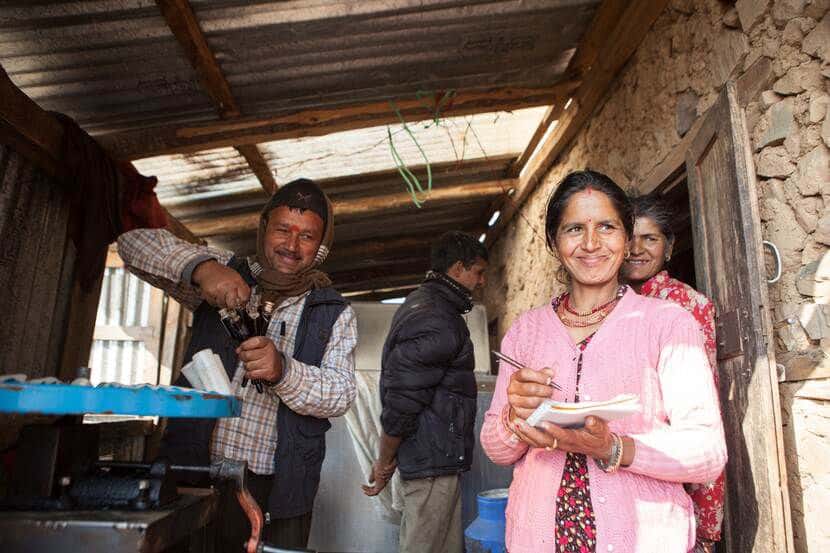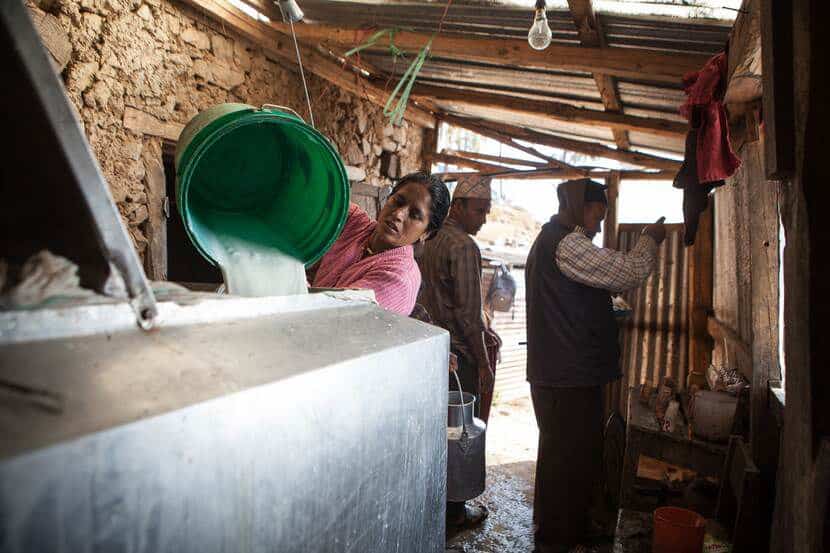One day she is standing in one of The Hague’s packed trams to get to the office. Another day, she is up to her ankles in the mud talking to a Senegalese farmer, discussing with her how to start a small shop to sell solar lights and home systems. But on both these days, Sheila Oparaocha, International Coordinator at ENERGIA, works hard to promote equal rights and opportunities for men and women. Sustainable energy plays a central role in her work.

Women and energy
‘For an organisation working on women’s rights and gender equality, a focus on energy makes more sense than you might expect. In many spheres, women are the main consumers. They make the decisions within the household about fuel for cooking, energy for lighting. Sustainable energy makes the life of many families much easier. Women are also most involved in the community and local markets. They are the most suitable distributors, for example as sellers of sustainable cooking stoves, or portable solar panels.’
Beyond the tarred road
‘We operate beyond the tarred road. Many of the areas where we work, are not interesting for commercial businesses. Infrastructure is lacking, people live scattered throughout the region. Here it are the small family farms and enterprises that support the community. About 80% of these in developing countries are run by women. We aim to empower women by supporting them with sustainable energy. This can help carry their business further, or they can become what we call ‘last mile distributors’.
Another core element of our approach is gender mainstreaming. Simply put, this means we take into account the needs and opportunities of both women and men in each and every step of the process.’

Nepalese farmer
‘Mina Sanjel from Nepal is an amazing example of what can be achieved through such an approach. When Mina joined our women’s entrepreneurship programme, she had 4 buffalos, producing 40 litres of milk a day. As she did not have access to energy, she was only able to turn the milk into khuwa, a Nepalese sweet. She was constantly operating at a loss. We discussed matters with her and her husband and the main issue turned out to be that they had no access to electricity. We assisted Mina with business skills training and to links to electricity providers and finance. Since then, she has been able to pay for a three phase electricity connection, buy 18 additional dairy buffalos, and also add a truck, refrigerator, cream separator, milking machine and milk chilling machine to her business.
She also employs 23 men and 6 women from the local community. Her husband and sons are also involved in the business.’
Collaboration
‘The Dutch Ministry of Foreign Affairs has been an important partner to us from 1999 onward. With that help we have been able to support over 34 energy projects to mainstream gender, provide almost 3 million consumers access to energy and have supported over 4,000 women entrepreneurs. That is a big step toward reaching the sustainable development goals. This is why we are also pleased to also collaborate with the Ministry on the technical advisory group that advises the United Nations on progress made on SDG on themes such as women’s economic rights and sustainable energy cross borders. It’s in everybody’s best interest that we continue to work hard on them.’
Sheila Oparaocha is International Coordinator at ENERGIA, International Network on Gender and Sustainable Energy. ENERGIA is hosted by Hivos.
*In the light of International Women’s Day, the Dutch Ministry of Foreign Affairs talked with our International Coordinator and Programme Manager Sheila Oparaocha. This interview was originally posted on their website.











Follow us on: